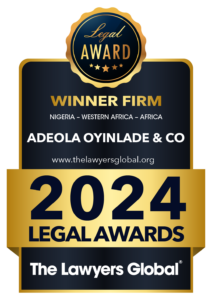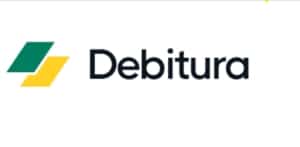Introduction
Financial Technology (Fintech) is simply the use of innovative technology for financial transactions and services. Fintech and payment solution companies are major players in the financial sector providing digital financial business services such as, payment solutions, mobile payments, online payment gateways, digital savings and investment wallets and more. Examples in Nigeria are Piggyvest, Paystack, Paga, Opay, etc. The Central Bank of Nigeria (CBN) is the primary regulatory authority for the financial sector. CBN issues licences and prescribes guidelines that regulate financial institutions. Companies in the financial industry are required to obtain necessary applicable licences for their operations. However, licences to be obtained will depend on the services of the fintech. Categories of the CBN licensing include Switching and Processing; Mobile Money Operations; Payment Solution Services, Payment Solution Service Provider, Payment Terminal Service Provider, Super-Agent and Regulatory Sandbox.
This article will outline the CBN checklist of requirements for Fintech operational licences including:
• Switching and Processing Licence
• Mobile Money Operator (MMO) Licence
• Payment Solution Services (PSS) Licence
• Payment Solution Service Provider (PSSP) Licence
• Payment Terminal Service Provider (PTSP) Licence
• Super-Agent licence
• Regulatory Sand box
1. SWITCHING AND PROCESSING LICENCE
a. Incorporation documents;
b. Details of ownership and holding company structure (if applicable);
c. Tax Clearance Certificate (TCC) for 3 years (if applicable) and Taxpayers Identification Number (TIN) of the company;
d. Bank Verification Number (BVN), Curriculum Vitae (CV), and means of identification (ID) for the directors and top management (including one independent non-executive director, chairman, and managing director);
e. Business plan and product deployment methodology;
f. Requisite policies and framework;
g. Signed agreements with sub-agents, financial institutions, and business parties;
h. Evidence of payment card security certification and other relevant payment terminal certification.
i. Application fees etc.
2. MOBILE MONEY OPERATOR (MMO) LICENCE
a. TCC for three years (if applicable) and TIN of the company;
b. Details of ownership and holding company structure (if applicable);
c. Incorporation documents;
d. BVN, CV and means of ID of the directors and top management (including one independent non-executive director, chairman and managing director);
e. Business plan;
f. Requisite policies and framework;
g. Project deployment time; and
h. Signed agreements with its partners.
i. Application fees etc.
3. PAYMENT SOLUTION SERVICES (PSS) LICENCE
a. TCC for three years (if applicable) and TIN of the company;
b. Incorporation documents;
c. BVN, CV, and means of ID of the directors and top management (including one independent non-executive director, chairman, and managing director);
d. Requisite policies and framework;
e. Signed agreements with its sub-agents, financial institutions, and partners;
f. Minimum of 50 agents;
g. Evidence of payment card security certification and other relevant payment terminal certification; and
h. Project deployment methodology.
i. Application fees
4. PAYMENT TERMINAL SERVICE PROVIDER (PTSP) LICENCE
a. Tax Clearance Certificate (TCC) of three years (if applicable) and TIN of the company;
b. Incorporation documents;
c. BVN, CV, and means of ID of the directors and top management (including one independent non-executive director, chairman, and managing director);
d. Requisite policies and framework; and
e. Project deployment methodology.
f. Application fees etc.
5. PAYMENT SOLUTION SERVICE PROVIDER (PSSP) LICENCE
a. Tax Clearance Certificate (TCC) of three years (if applicable) and TIN of the company;
b. Incorporation documents;
c. BVN, CV, and means of ID of directors and top management (including one non-executive director, chairman, and managing director);
d. Signed agreements with its partners;
e. Requisite policies and framework; and
f. Evidence of payment card security certification and other relevant payment terminal certification.
g. Application fees etc.
6. REGULATORY SANDBOX
a. Incorporation documents;
b. Shareholding structure;
c. Project plan, business proposal, and
d. Outline of the strategy of the sandbox trial;
e. Evidence of patent rights (if applicable);
f. CV of directors and top management.
7. SUPER-AGENT LICENCE
Conclusion
Fintech and Payment solution providers in Nigeria must consider their specific services and carefully comply with the regulatory requirement for each licence to ensure that their businesses are in line with applicable laws and guidelines.
By Adeola Oyinlade & Co
Note: The content of this article is anticipated to provide a general guide to the subject matter. Specialist advice should be sought about your specific circumstances.
Adeola Oyinlade & Co provides help and offer advisory to both local and foreign clients in obtaining Fintech and payment solution licenses in Nigeria.
Need help? Kindly contact us using the details below:
Email: [email protected]
Mobile: +234 803 826 7683 / +234 802 686 0247







